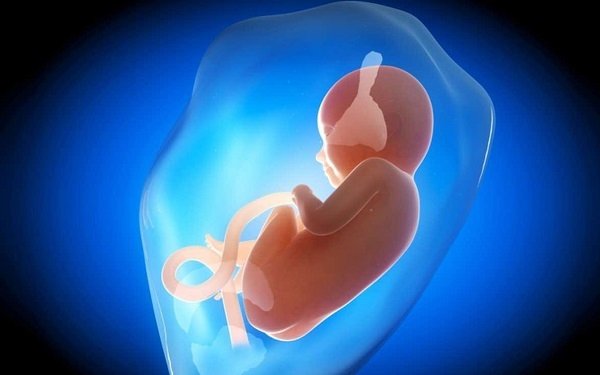What do you know about meconium aspiration syndrome?
Meconium aspiration syndrome (abbreviated MAS). MAS can occur before, during or after birth, due to inhalation of amniotic fluid containing meconium, causing partial or total airway obstruction, which can lead to gas exchange disturbances and severe respiratory failure.
1. What is meconium?
Meconium is the residue accumulated in the newborn baby's intestines, meconium contains water (70-80%), squamous cells, secretions from the digestive tract, fetal hair, amniotic fluid, glycoproteins and bile salts. Normal meconium does not pose a danger to an infant. Newborn meconium is green, black, and has a sticky texture. About 12 hours after birth, thanks to the mother's colostrum feeding and the baby's digestive system begins to work, the meconium will be expelled from the large intestine. Related to meconium, the most typical syndrome is meconium aspiration syndrome. This condition can cause asphyxiation, making it difficult for the baby to breathe and have many other sequelae later on.
2. What is meconium aspiration syndrome?
The pressures your baby experiences before or during birth can cause your baby to pass meconium while in the womb. Meconium aspiration syndrome is a condition in which a baby breathes a mixture of meconium and amniotic fluid into the lungs or airways during labor.
3. Causes of meconium aspiration syndrome
Meconium aspiration syndrome is often associated with fetal distress due to problems in the womb such as infections or difficulties during delivery. The fetus may lack oxygen, stimulating the parasympathetic nervous system to increase intestinal activity, relax the anal sphincter (the muscular valve that controls the passage of stool from the anus), and expel meconium into the amniotic fluid around the fetus.

Hội chứng hít phân su thường liên quan đến suy thai do các vấn đề trong bụng mẹ
However, the presence of meconium during labor and delivery is not always associated with fetal distress. Sometimes, babies who are not impaired still pass meconium before they are born. Risk factors for meconium aspiration syndrome include:
Difficult and prolonged delivery. Advanced gestational age (or gestational age): A gestational age of more than 40 weeks can lead to an aging placenta, also known as an “old age” pregnancy. Placenta is the organ that provides nutrients to the fetus, when the placenta is aging due to being over a week old, it will not be able to provide enough oxygen for the fetus. At this time, the amount of amniotic fluid has decreased, which stimulates meconium, mucus to accumulate. As a result, meconium aspiration syndrome was more common in premature infants than in premature or on-time infants. The mother smokes a lot. The mother has diabetes, high blood pressure (hypertension), chronic respiratory or cardiovascular disease. Infectious diseases. Umbilical cord complications Fetal growth retardation (a baby who grows slowly in the uterus) Premature birth is not a risk factor for a baby inhaling meconium. In fact, this syndrome is very rare in babies born before 34 weeks.
4. What are the signs of meconium aspiration syndrome?
Before or during delivery, your doctor will likely notice one or more symptoms of meconium aspiration syndrome, including:
Meconium or dark green stains in the amniotic fluid Baby's skin discoloration – yes may be blue (cyanotic) or green (stained by meconium) Breathing problems: rapid breathing, difficulty breathing (difficulty breathing) or pauses in breathing, unusually swollen chest.

Bé có vấn đề về hô hấp: thở nhanh, thở khó khăn (khó thở) hoặc ngừng thở, ngực căng phồng bất thường
Babies with low heart rate before birth Low Apgar Index (taken soon after birth to quickly assess color, heart rate, reflexes, muscle tone and breathing) Weak baby.
5. Complications can occur when the baby inhales meconium
Most babies with meconium aspiration syndrome will have no long-term health complications. However, this is a serious problem that can have an immediate impact on the health of a newborn because meconium in the lungs can cause inflammation and infection.
Meconium can also block the airways and enlarge the lungs. If the lungs are too enlarged, they can rupture or fail, and air from within the lungs accumulates in the chest cavity and around the lungs. This condition is called a pneumothorax and makes it difficult to regenerate the lungs.
Meconium aspiration syndrome also increases the risk of neonates with persistent pulmonary hypertension. High blood pressure in the pulmonary blood vessels restricts blood flow making it difficult for your baby to breathe properly. Pulmonary hypertension in infants is a rare but potentially life-threatening condition.
In rare cases, severe amniotic fluid aspiration syndrome can restrict oxygen to a baby's brain, causing permanent brain damage.
Để đặt lịch khám tại viện, Quý khách vui lòng bấm số HOTLINE hoặc đặt lịch trực tiếp TẠI ĐÂY. Tải và đặt lịch khám tự động trên ứng dụng MyVinmec để quản lý, theo dõi lịch và đặt hẹn mọi lúc mọi nơi ngay trên ứng dụng.
Bài viết này được viết cho người đọc tại Sài Gòn, Hà Nội, Hồ Chí Minh, Phú Quốc, Nha Trang, Hạ Long, Hải Phòng, Đà Nẵng.






